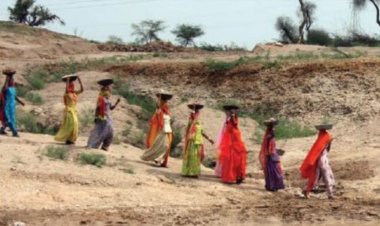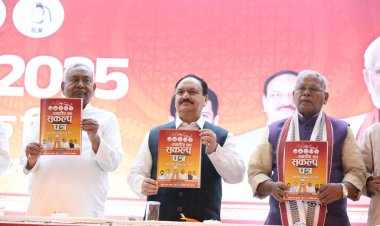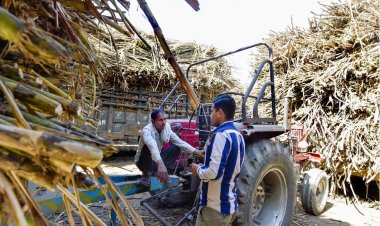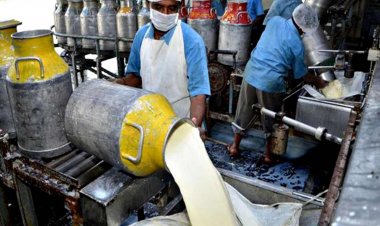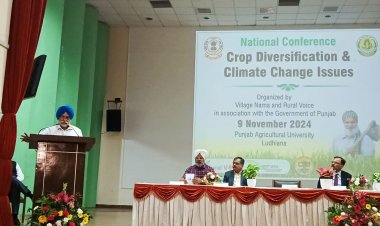Farm-to-table: UP looking at global branding of ‘kalanamak’ rice
In a classic case of farm-to-table concept, the Uttar Pradesh government is vigorously promoting the indigenous and nutritious ‘kalanamak’ rice variety to enrich the agricultural value chain and benefit local farmers.
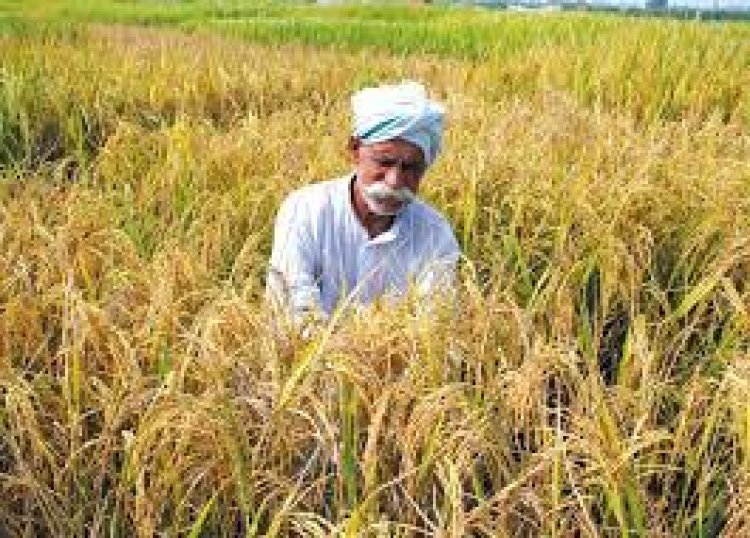
Lucknow / March 16, 2021
In a classic case of farm-to-table concept, the Uttar Pradesh government is vigorously promoting the indigenous and nutritious ‘kalanamak’ rice variety to enrich the agricultural value chain and benefit local farmers.
Since, chief minister Yogi Adityanath is taking a keen interest in its promotion, the concerned departments and officials are going an extra mile to ensuring that the paddy variety becomes popular in the rice consuming regions, both nationally and internationally.
To promote its farming and food processing industry in UP, the Yogi government has included kalanamak in the state’s flagship One District, One Product (ODOP) scheme.
Amid the ongoing stir over new farm laws, this is an instance wherein the Bharatiya Janata Party (BJP) government is promoting an agro variety, which is not in the minimum support price (MSP) basket, but offers remunerative returns to farmers.
In a sense, kalanamak will soon offer competition to the peer paddy variety of basmati, which remains in high demand among the affluent sections of society and is a staple grocery for special occasions. Basmati is exported in large quantities to Iran and other West Asian markets in the Gulf region owing to its aroma and large grain size.
Kalanamak rice derives its name from its black colour paddy, although the rice grain is white in colour. It is principally grown in the Eastern UP districts viz. Siddharth Nagar, Deoria, Kushinagar, Maharajganj, Sant Kabir Nagar, Basti, Bahraich, Balrampur, Gonda and Shravasti, which are considered as the ideal agro-climatic zones.
It is not only aromatic but contains useful minerals and micronutrients, including iron, zinc etc. It is said to be beneficial in keeping Alzheimer's disease and diabetes at bay.
On an average, kalanamak entails Rs 30-40 per kg in input costs, but it sells upwards of Rs 100 to Rs 300 per kg depending upon the quality, grade and packaging.
Recently, the state government had also organised a three-day ‘Kalanamak Rice Festival’ in Siddharth Nagar district. The event was virtually inaugurated by the CM, who waxed eloquent on the variety and its potential to tap the international market if positioned and branded professionally.
Earlier, the state had announced that a consignment of 20 tonnes of kalanamak would be exported from Siddharth Nagar to Singapore under the brand name ‘Buddha Rice’.
According to UP additional chief secretary, MSME and export promotion, Navneet Sehgal, " Government is dexterously packaging the product in attractive jars and fancy labels for the international market, so that kalanamak gains traction in the market, especially in the Buddhist majority countries in South East Asia."
There is also a plan to establish a Kalanamak Rice Research Centre at Siddharth Nagar in collaboration with the International Rice Research Centre, Varanasi.
In colloquial terms, kalanamak rice is also referred to as ‘Buddha ka Mahaprasad’ (offering to Lord Buddha) It is believed, the paddy was grown at Bajaha village in Siddharth Nagar district during the period of Lord Buddha. But, it eventually lost to other rice varieties, such as basmati in the popularity and marketing index.
Now, the Yogi government is on a spree of highlighting and celebrating locally grown agricultural and horticultural crops. So far, the state has organised Strawberry, Kalanamak Rice and Gur (jaggery) festivals. Now, the government is looking at organising a similar fest for dragon fruit to benefit the local farmers and augment their earnings.
“We are planning to organise separate agro festivals for those farm varieties, which are included in the ODOP scheme and have the potential of promoting the respective forward linked food processing industry. This will strengthen these brands and boost rural incomes,” Sehgal observed.
(Virendra Singh Rawat is a Lucknow based journalist, who writes on contemporary issues of industry, economy, agriculture, infrastructure, budget etc)



 Join the RuralVoice whatsapp group
Join the RuralVoice whatsapp group

















